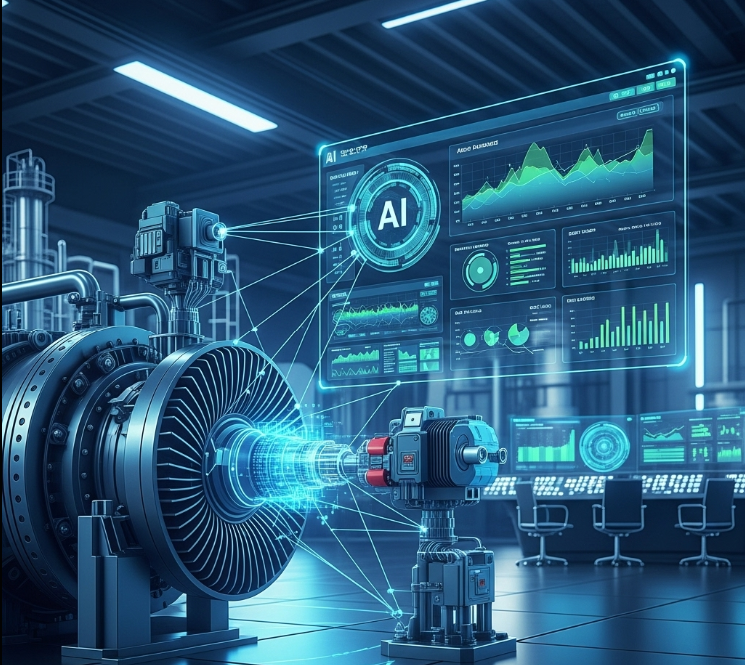Optimizing Petrochemical Plant Operations with Advanced Machine Learning Techniques
- Mohamed Alhashme
- Jan 4, 2025
- 3 min read

The petrochemical industry is a cornerstone of modern manufacturing, producing essential materials like plastics, textiles, and industrial chemicals. However, the complexity of petrochemical plant operations—ranging from feedstock preparation to cracking and polymerization—presents significant challenges in maintaining efficiency, product quality, and environmental compliance. Advanced machine learning (ML) techniques are emerging as transformative tools to address these challenges, enabling real-time optimization, predictive maintenance, and sustainability improvements.
Key Challenges in Petrochemical Plant Operations
Petrochemical plants face several operational challenges that impact efficiency and profitability:
Feedstock Variability: The composition of raw materials like naphtha or natural gas liquids can vary significantly, affecting downstream processes.
Process Complexity: Multi-step processes such as cracking, distillation, and polymerization require precise control to optimize yields.
Equipment Downtime: Unplanned maintenance can disrupt production schedules and increase costs.
Environmental Regulations: Stricter emission standards necessitate continuous monitoring and optimization.
Energy Consumption: High energy usage in processes like steam cracking contributes to operational costs and carbon footprints.
Addressing these challenges requires innovative solutions that leverage the vast amounts of data generated within petrochemical plants.
Applications of Machine Learning in Petrochemical Plants
1. Real-Time Process Optimization
Machine learning models can analyze real-time data from sensors across the plant to identify inefficiencies and recommend parameter adjustments. For example:
Cracking Optimization: ML algorithms can optimize conditions like temperature and pressure in steam crackers to maximize ethylene yield while minimizing energy consumption.
Distillation Column Efficiency: Predictive models can adjust reflux ratios or heat input to improve separation efficiency in distillation units.
By continuously refining process parameters, ML ensures that plants operate at peak efficiency under varying conditions.
2. Predictive Maintenance
Unplanned equipment failures are costly and disruptive. ML-powered predictive maintenance systems use sensor data to forecast potential issues before they occur. Examples include:
Monitoring the health of compressors used in cracking units.
Detecting early signs of fouling in heat exchangers through anomaly detection algorithms.
This proactive approach reduces downtime, extends equipment life, and lowers maintenance costs.
3. Feedstock Quality Prediction
Variability in feedstock quality can significantly impact production outcomes. ML models trained on historical data can predict the behavior of different feedstocks during processing. For instance:
Predicting the yield of ethylene or propylene based on the composition of naphtha.
Identifying optimal blending strategies for feedstocks to achieve consistent product quality.
4. Emission Monitoring and Reduction
With increasing regulatory pressure, ML is instrumental in tracking and reducing emissions:
Emission Prediction Models: Algorithms analyze process data to predict CO₂ emissions under different operating scenarios.
Energy Optimization: ML identifies opportunities for energy recovery, such as utilizing waste heat from cracking units for other processes.
5. Virtual Analyzers for Quality Control
Traditional lab-based quality checks are time-consuming. Virtual analyzers powered by ML can estimate product properties like polymer density or viscosity in real time using process data. This enables quicker adjustments to maintain product specifications.
Case Study: Optimizing Ethylene Production
A petrochemical plant implemented an advanced process control (APC) system integrated with machine learning for its ethylene cracker unit. Key outcomes included:
A 2% increase in plant throughput by optimizing cracking conditions.
A 10% reduction in specific energy consumption through real-time adjustments.
Improved product quality consistency with virtual analyzers estimating ethylene purity.
These results highlight the potential of ML to deliver substantial economic and environmental benefits.
Challenges in Adopting Machine Learning
While the benefits are clear, implementing ML in petrochemical plants comes with its own set of challenges:
Data Quality: Inconsistent or incomplete sensor data can hinder model accuracy.
Integration with Legacy Systems: Many plants operate older equipment that may not support modern data acquisition systems.
Model Interpretability: Operators may be hesitant to trust black-box models without clear explanations of predictions.
Workforce Training: Engineers need training to effectively use ML tools and interpret their outputs.
Overcoming these barriers requires investments in digital infrastructure, workforce development, and collaboration with technology providers.
Future Directions for Machine Learning in Petrochemicals
The future of machine learning in petrochemical plants is promising, with several emerging trends:
Digital Twins: Creating virtual replicas of entire plants enables operators to simulate various scenarios and optimize performance without disrupting operations.
Sustainability Integration: ML will play a critical role in achieving net-zero goals by optimizing energy usage and reducing waste streams.
Adaptive Automation: Combining ML with robotics could automate repetitive tasks like equipment inspections or catalyst replacements.
Conclusion
Machine learning is revolutionizing petrochemical plant operations by addressing key challenges such as process inefficiencies, equipment downtime, and environmental compliance. From real-time optimization to predictive maintenance, its applications are driving significant improvements in productivity, cost savings, and sustainability. However, successful adoption requires overcoming challenges related to data quality, system integration, and workforce readiness.As the petrochemical industry continues its digital transformation journey, leveraging machine learning will be essential for staying competitive in an increasingly complex and regulated environment.




Comments